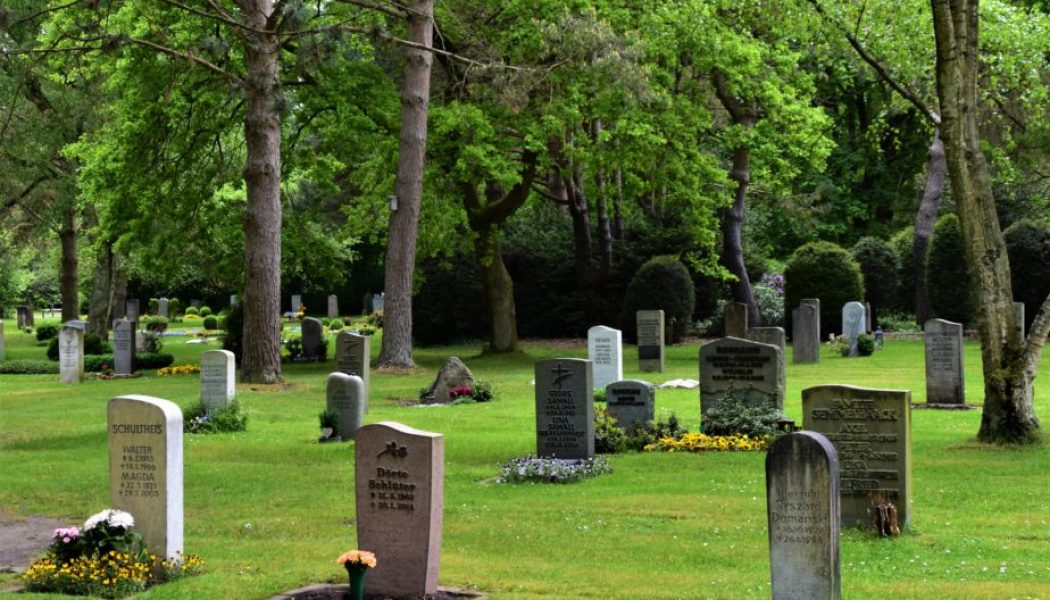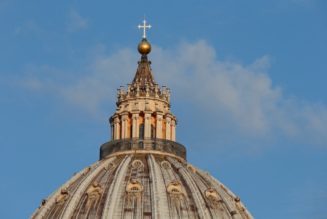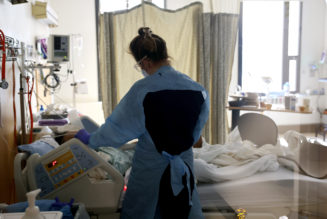
With the feast the of Faithful Departed approaching, the faithful know it’s a special time of prayer for those who have gone before us. This year, due to the COVID-19 pandemic, the Apostolic Penitentiary has issued a decree extending the traditional times for the two plenary indulgences applicable to the souls in purgatory during the month of November.
Plenary indulgence for Nov. 1 – 8
The plenary indulgence granted for visiting a cemetery and praying for the deceased from Nov. 1 – 8 can be completed throughout the whole month of November. The faithful may choose what days to visit the cemetery. The days don’t have to be consecutive.
Plenary indulgence for All Souls Day (Nov. 2)
Furthermore, the plenary indulgence for All Souls Day on Nov. 2, whereby a member of the faithful devoutly visits a church or oratory and recites the Our Father and Creed, may be transferred to any day during the month of November.
Adaptations for those affected by COVID-19
Considering the obstacles that may arise due the pandemic, the Apostolic Penitentiary has adapted the requirements to obtain these indulgences for those who are unable to leave their house.
For those who are sick, the elderly or those who are unable to visit a cemetery, church or oratory for any other serious reason – such as coronavirus restrictions – it is possible to obtain any of these plenary indulgences by doing the following:
- Spiritually uniting themselves with the faithful
- And doing one of the following before an image of Jesus or the Blessed Virgin Mary:
- Praying devout pious prayers for the deceased (e.g. Rosary, Office of the Dead, Divine Mercy Chaplet, etc.)
- Reading and reflecting on the Gospel passages prescribed for Masses of the Dead
- Performing a work of mercy by offering to God the sorrow and hardships of their own lives
Usual conditions for obtaining a plenary indulgence
The three usual conditions for obtaining a plenary indulgence still stand and are to be completed within 20 days before or after the prescribed work. However, those who are unable to fulfill this timeframe may complete them as soon as possible.
The three usual conditions are:
- Reception of Holy Communion for each plenary indulgence
- Sacramental Confession (one confession can suffice for multiple plenary indulgences)
- Prayer for the intention of the Holy Father for each plenary indulgence
What is an indulgence?
The remission of temporal punishment that remains as a consequence of sin after it has been forgiven. It is a grace granted by the Church, in the exercise of the power of the keys given to it by the Lord, and through the merits of Jesus Christ, Mary and the saints.
Does a plenary indulgence forgive sins?
No. An indulgence only applies to sins that have already been forgiven.
Why is there a temporal punishment if the sin has been forgiven?
This example can help us understand: A child is disobedient toward his dad, who had previously told him not to play with the ball inside the house, and breaks a window. With regret, the child apologizes to his father. His father forgives him, but a consequence remains: he must make up for the broken window. So, his mother and siblings decide to help him pay the debt with his father’s permission.
Likewise, the confessed sin is forgiven, but there is still a punishment that must be atoned for. This is the debt that the Church helps us pay through indulgences.
Who can I offer an indulgence for?
Depending on the indulgence, it can be offered for oneself or the deceased. In the case of the plenary indulgences for the Faithful Departed, the indulgence is obtained for the souls in purgatory and not for the person who does them.
An indulgence can also be offered up to Mary, so that she may apply it to the soul she wishes to help. Indulgences offered for others only apply to the souls in Purgatory – those in Heaven don’t need them, and those in Hell can’t use them. Since we don’t know if the souls of the faithful departed are in Heaven, it is best to continue to offer indulgences for them.
Can an indulgence be offered for another living person?
No.
What effect does a plenary indulgence produce in my soul?
If it is offered for oneself, it frees us from the temporal punishments of sins that have already been confessed and forgiven, from the moment of our baptism to the date in which we obtain the plenary indulgence.
If offered for the deceased, it’s a great work of mercy, since it frees them from the punishment of their forgiven sins, which can help them leave Purgatory and enter Heaven. St. Catherine of Siena used to say that the souls we help in this way will be eternally grateful to us – they will always pray for us and when we reach Heaven, they will be there to receive us.
If a person who has confessed their sins and obtained a plenary indulgence were to die, would they go to Heaven?
Yes, insofar as they have nothing else to purify, in the sense of attachments and unconfessed venial sins.
How many indulgences can I obtain?
One per day.
How can I obtain a plenary indulgence?
You must be in a state of grace, have complete detachment from all sin after going to confession, attend Holy Mass, receive communion, pray for the intentions of the Pope (for example: an Our Father, a Hail Mary and the Creed), and complete what the Church requires to obtain the indulgence.
The FAQ is based on an article originally published in Spanish by ACI Prensa. It has been translated and adapted by the Denver Catholic.
Join Our Telegram Group : Salvation & Prosperity









